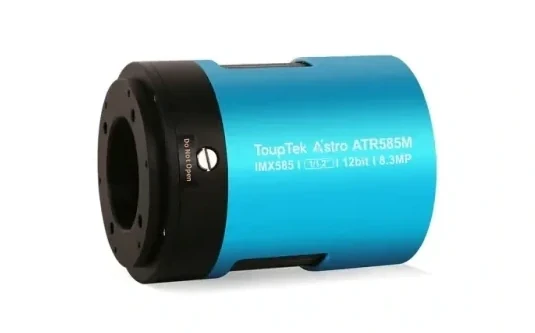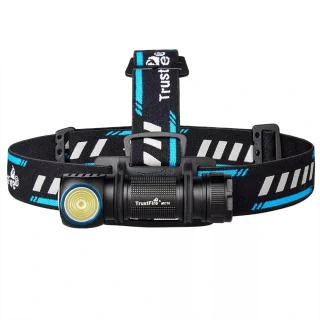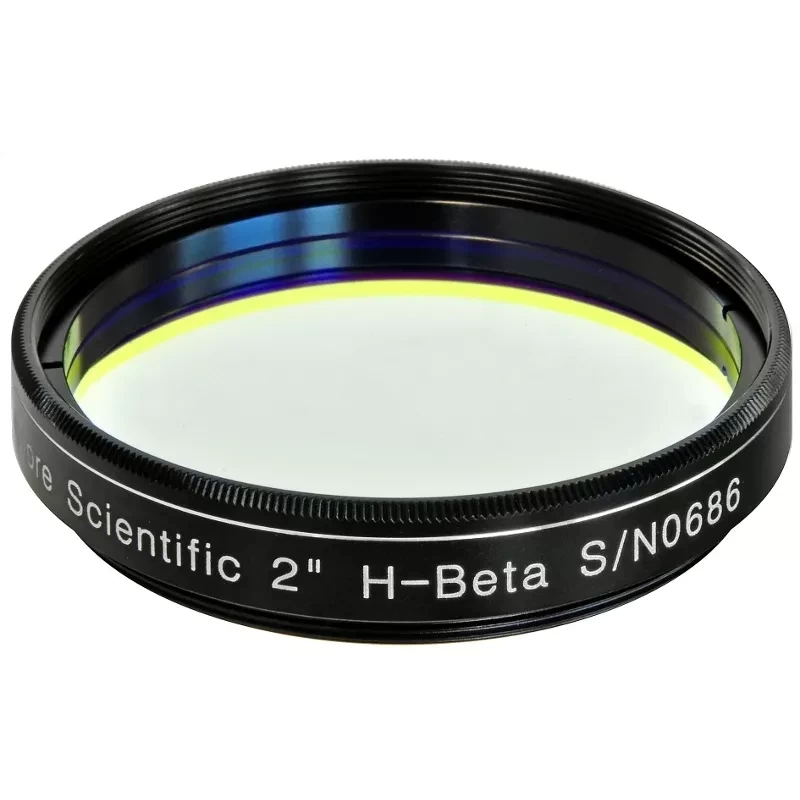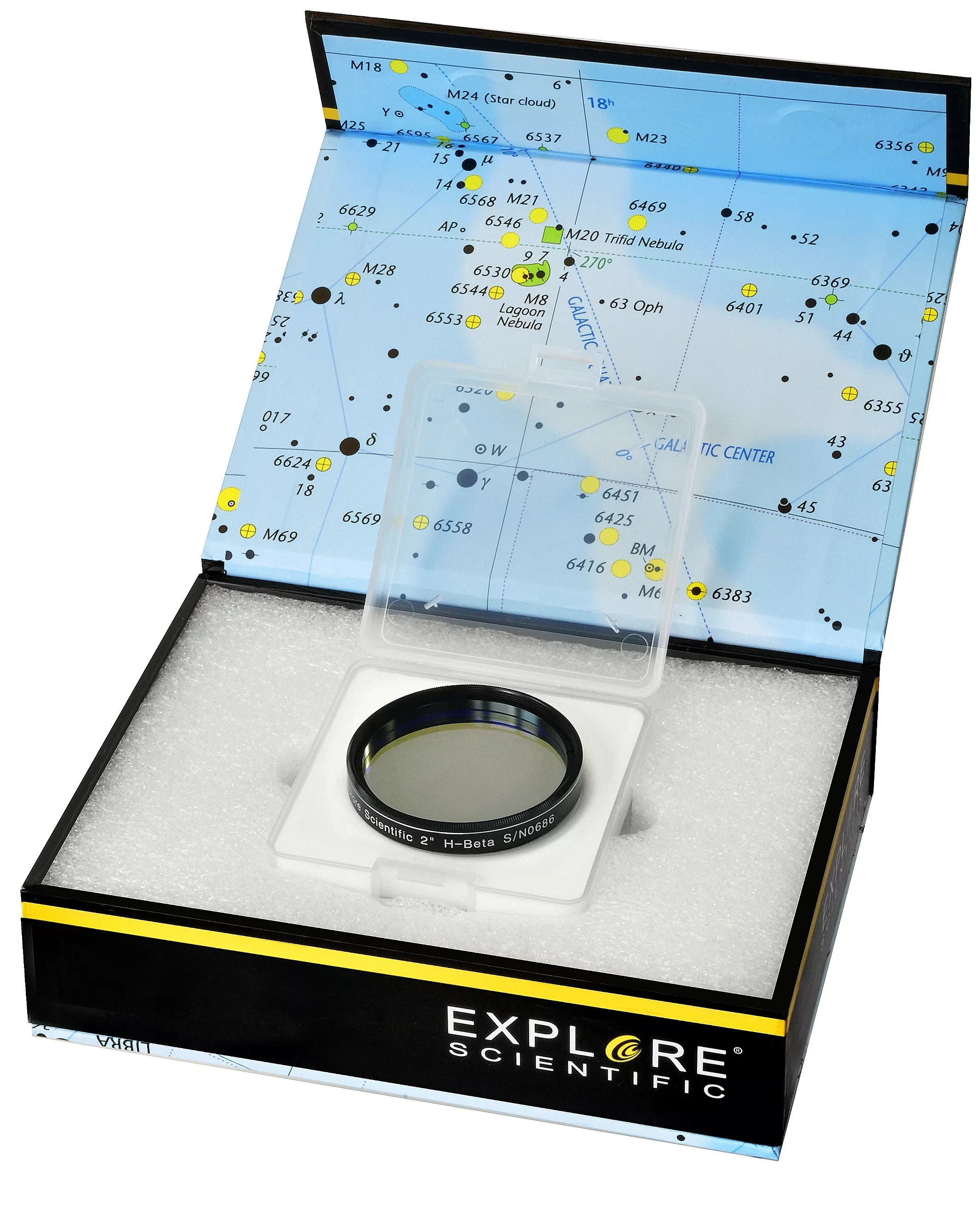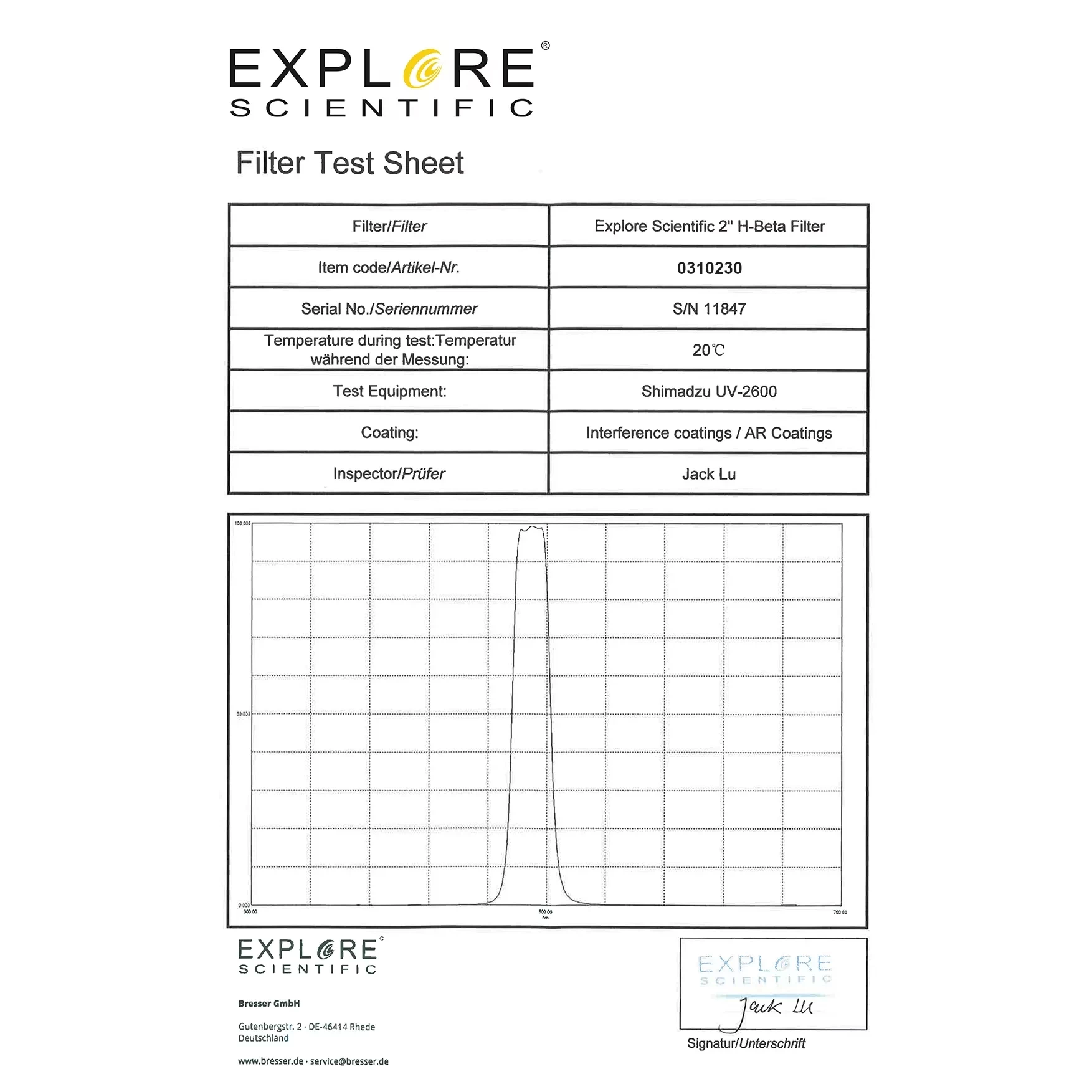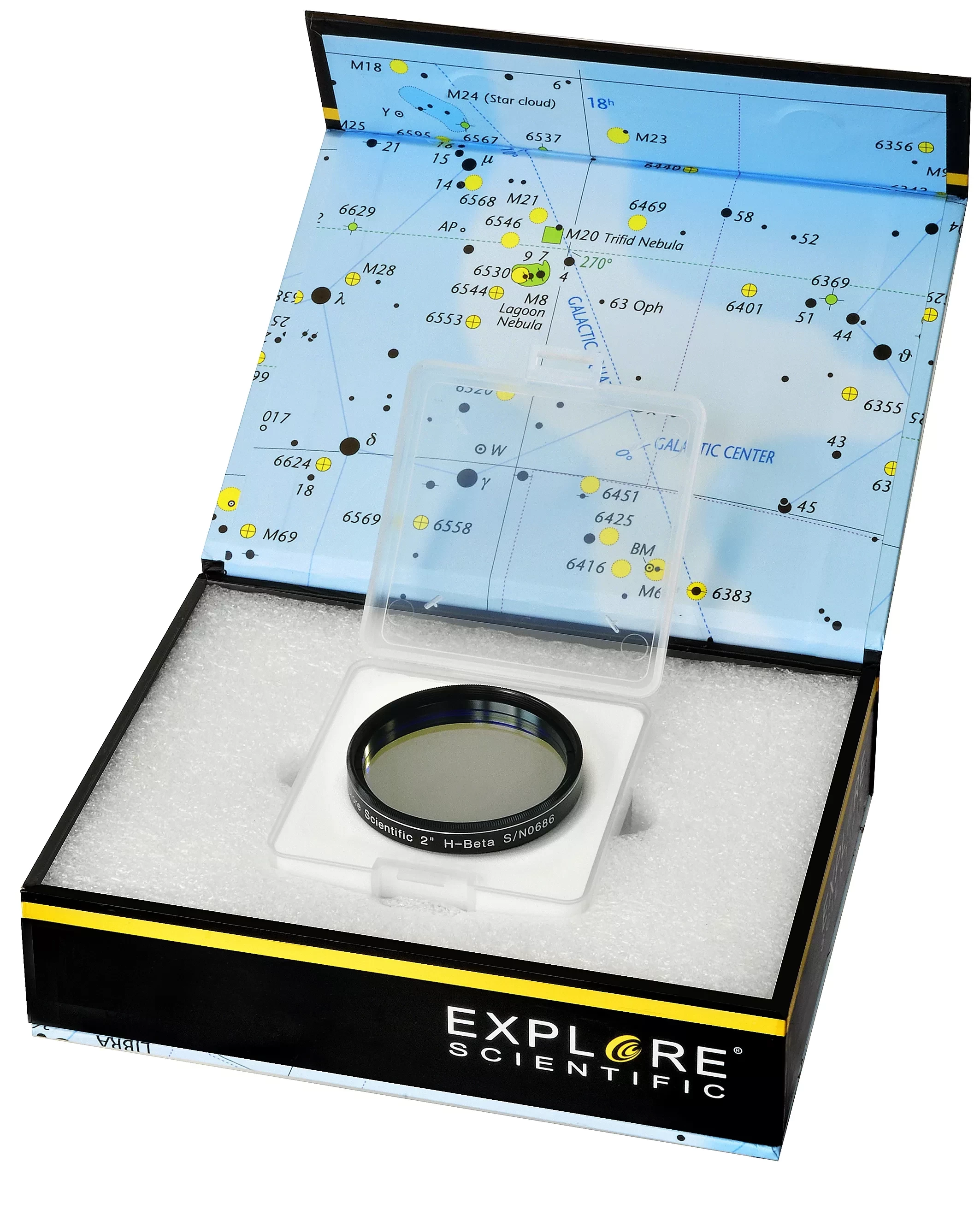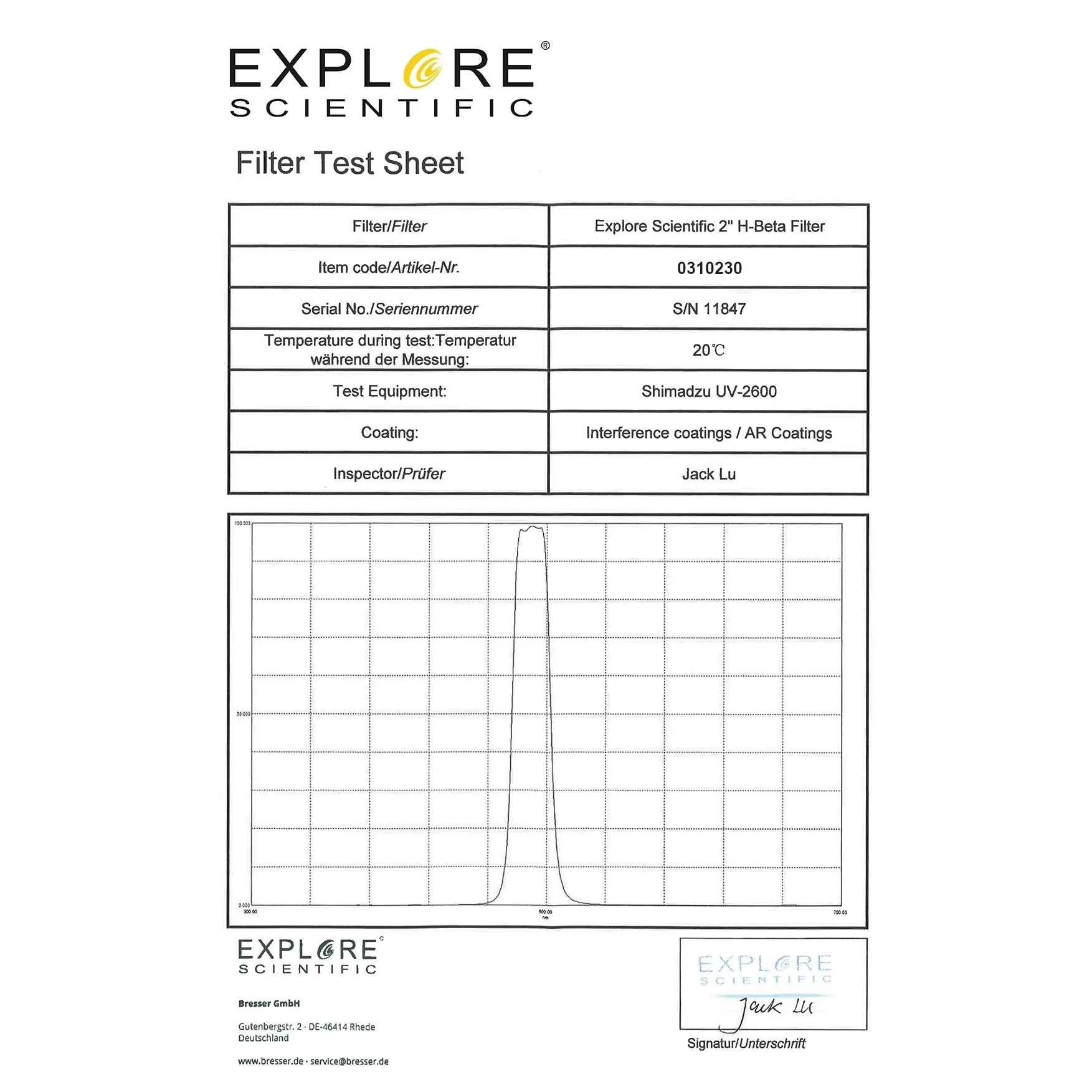Would you like to observe some of the most visually elusive nebulae such as the Horsehead Nebula or the California Nebula? If you're a dedicated and skilled deep-sky observer, the Explore Scientific H-beta filter might be a useful addition. Using these filters, you can see some faint emission nebulae in particular, which you wouldn't see at all without a filter, even from a dark sky.
The Explore Scientific H-beta filter is a very special deep-sky filter. Its principle of operation is quite simple: it only lets a certain wavelength of incoming light through. Specifically, only the hydrogen-beta (486 nm) emission line of the excited-state hydrogen gas reaches our eyes, all other wavelengths are "cut off" by the filter. As a result, the contrast between the sky background and the observed object increases spectacularly, the nebula almost pops out of the sky background, making faint details visible.
Compared with OIII and UHC filters, H-beta filters transmit less light, so are recommended only for large telescopes under 25 cm and for experienced deep-sky observers.
Each Explore Scientific deep-light filter is uniquely tested by the manufacturer, with a certificate issued, so premium quality is guaranteed.





